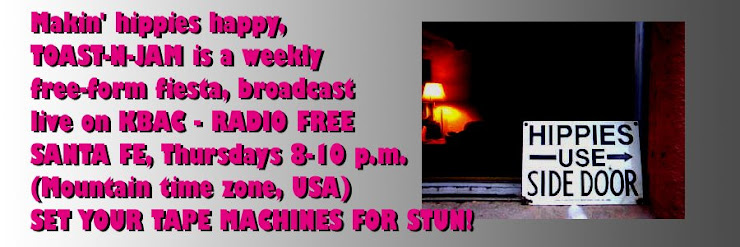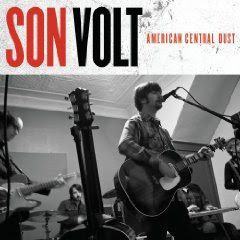The t-shirts and posters at the merch booth lauded Willie Nelson as an American legend and, at age 78, that’s a moniker he’s certainly earned. He’s earned another label of dubious merit over the years: unapologetic pothead.
However, if he was stoned tonight, how could anyone tell? He tore through song after classic song, often at breakneck speed, and never, ever dropped a note or lick or lyric that I caught. All with a posture indicating he could probably do it with both hands tied behind his back. Some say this almost listless urgency is just his style and has been for years, but even on ballads like “Angel Flying Too Close to the Ground,” or “Georgia on My Mind,” which elicited thunderous applause from the largely well-behaved audience before he’d sung half their first verses, Nelson seemed just this side of in a hurry to get finished and on to the next gig.
Not to say the set list wasn’t an impressive string of hits – some his, some not – but with his sparse, honky-tonk lineup, I was hoping for at least a hint of intimacy. What I got was a show just lively enough to imply he wasn’t merely going through the motions.
 The first 3 songs were “Whiskey River,” “Still is Still Moving to Me,” and “Beer for My Horses,” from 1973’s Shotgun Willie, 1993’s Across the Borderline, and Toby Keith’s 2002 release, Unleashed, respectively. A nice triptych to open with, covering a wide swath of his catalog, and the crowd cheered for all of them, but if this was going to be a “Willie Nelson’s Greatest Hits” show, somewhat obscure choices. His musical statement out of the gate seemed to be, “I’ll play what I damn well please, and you’re gonna enjoy it.” And guess what? We did.
The first 3 songs were “Whiskey River,” “Still is Still Moving to Me,” and “Beer for My Horses,” from 1973’s Shotgun Willie, 1993’s Across the Borderline, and Toby Keith’s 2002 release, Unleashed, respectively. A nice triptych to open with, covering a wide swath of his catalog, and the crowd cheered for all of them, but if this was going to be a “Willie Nelson’s Greatest Hits” show, somewhat obscure choices. His musical statement out of the gate seemed to be, “I’ll play what I damn well please, and you’re gonna enjoy it.” And guess what? We did.The show played like one long country super-medley, since he barely stopped to take a breath between any of the songs, so I almost didn’t notice there was an actual medley of early Nelson compositions: “Funny How Time Slips Away/Crazy/Night Life.” All of these unquestionable classics were hits for others during Nelson’s lean years. The first was a hit for Billy Walker in 1961, the second a hit for Patsy Cline in 1962, and the third a hit for Ray Price in 1963. Nelson would not become a star in his own right until a decade later, but these songs prove he had talent, even when hardly anyone knew it yet.
Of course, Nelson isn’t the only one to have had others record hit versions of his songs. Rhodes Scholar Kris Kristofferson, another living legend of the outlaw country subgenre, wrote “Help Me Make It through the Night,” and it was recorded and/or performed by literally scores of artists besides Nelson (including Elvis Presley, though Sammi Smith recorded the most famous version). During this number he took the opportunity to show off some licks which I can only classify as “gypsy jazz,” then played right into “Me & Bobby McGee,” perhaps Kristofferson’s most well-known number (thanks to the late Janis Joplin).
Then came the Acuff-Rose classic, “Blue Eyes Crying in the Rain,” and loud applause came too. You know a song’s a classic when the applause comes at the beginning as well as the end. This is a song nearly everyone is certain Nelson must have written (though he didn’t), but it did help make him famous as a recording artist in his own right back in 1975 when he cut it for the classic album Red-Headed Stranger.
Now, at almost the exact middle of the show – when most shows get bogged down in self-indulgence, experimentalism, and trying out new material – the floodgates were finally open, and a seemingly unending barrage of Nelson’s biggest hits came one after the other. Most performers save this part of the set until just before the big encore (or FOR the big encore), but again, Willie’s gotta do it Willie’s way. Perhaps unsurprisingly, the biggest of the big hits got the biggest reaction: “On the Road Again” and “Always on My Mind.” The jaded cynic in me wants to say I yawned my way through them, but hearing them live, with everybody singing along, was even better than hearing those recordings for the first time.
After Nelson paused for a millisecond to name-drop Waylon Jennings, “Good Hearted Woman” actually got a couple of the expensive seat-holders up and dancing before security managed to calm them down.
He even took time to pay homage to one of country’s true originals, Hank Williams, with “Jambalaya (On the Bayou),” “Hey, Good Lookin’” and “Move it on Over,” leaving me to wonder what kind of show ol’ Hank might be doing today, had he not died so young. Of course, he’d be pushing 90, but Nelson’s pushing 80, and seems fine with his lot: carrying the traditional country torch.
There was even a series of songs Nelson classified as “spirituals,” though I’d just classify them as old-timey: “Nobody’s Fault but Mine,” “Will the Circle Be Unbroken,” and “I’ll Fly Away.” The first’s origins are so obscure that most who’ve recorded it over the years simply label it a traditional, though some attribute it to Blind Willie Johnson, who recorded it in the early 20th century. The 2nd was derived from an actual Christian hymn and was cut famously by the Carter Family in 1935. “I’ll Fly Away” was published around the same time by a well-known hymnal writer of the day, though Wikipedia states the song’s true origins are secular. Allison Krauss and Gillian Welch revived it for the 2000 film release O Brother Where Art Thou? I recall the film’s soundtrack sparking a popular revival of old-time country. Listening to Nelson for 2 hours reminded me of great old-time songs I’d nearly forgotten, and rekindled my appreciation for that style of music. Trouble is, precious few “new country” artists are carrying that aesthetic into the future, as anyone who’s listened to country radio for 15 minutes could tell you – but I’m certain another revival will spark interest again down the road. Everything old circles back into vogue eventually.
“Me and Paul,” Nelson’s dusty old gem from 1971, was one of the night’s biggest surprises for me. I mistook it for a new song since I couldn’t recall ever hearing it before. I was quick to dig out the original when I got home and compare it to the experience I’d just had at the concert. One of the verses struck me as something he could have just as easily written yesterday: “Almost busted in Laredo / But for reasons that I’d rather not disclose / But if you’re stayin’ in a motel there and leave / Just don’t leave nothin’ in your clothes.” Actually the whole song seems like it could’ve been written yesterday, with lyrics like “After takin’ several readings / I’m surprised to find my mind’s still fairly sound,” and “At the airport in Milwaukee / They refused to let us board the plane at all / They said we looked suspicious.” And that’s what I noticed about this collection of songs from Willie Nelson, the standard-bearer: they are timeless. And so is he.
 He already seemed ancient and wise to me when I first looked through my mom’s record albums over 30 years ago, but he and his songs don’t seem to have aged at all since. Nelson, or at least Nelson’s voice, is weathering the effects of old age better than some. He’s got almost a decade on Bob Dylan, but Dylan’s voice blew out ages ago. I’m always impressed by an artist who can perform songs with the barest of instrumentation, no fireworks, no razzle-dazzle, just let the music do the talking. His costume changes amounted to: 1) taking off his cowboy hat and donning his trademark red bandana (just in time for the line in “Me and Bobby McGee,” I noticed), and 2) taking off the bandana and finishing the show with no headgear at all. Other than that, just a black shirt, black pants, black shoes, that bizarre red-white-and-blue guitar strap that looks like it attaches to the bottom of the guitar. Just like always, right?
He already seemed ancient and wise to me when I first looked through my mom’s record albums over 30 years ago, but he and his songs don’t seem to have aged at all since. Nelson, or at least Nelson’s voice, is weathering the effects of old age better than some. He’s got almost a decade on Bob Dylan, but Dylan’s voice blew out ages ago. I’m always impressed by an artist who can perform songs with the barest of instrumentation, no fireworks, no razzle-dazzle, just let the music do the talking. His costume changes amounted to: 1) taking off his cowboy hat and donning his trademark red bandana (just in time for the line in “Me and Bobby McGee,” I noticed), and 2) taking off the bandana and finishing the show with no headgear at all. Other than that, just a black shirt, black pants, black shoes, that bizarre red-white-and-blue guitar strap that looks like it attaches to the bottom of the guitar. Just like always, right?Maybe that style of performance is nearly extinct. Maybe us old-timers (I feel that way sometimes, but then I always have) are the only ones left who appreciate it in this instant-streaming-pop-culture-overload-hard-to-tell-the-difference-between-news-and-advertising world. Maybe the next generation just hasn’t re-discovered it and made it their own yet. George Jones once sang, “Who’s Gonna Fill Their Shoes,” referencing the country greats who’d shuffled off this mortal coil. Nelson’s filling ‘em for now, and proudly.
A few of my favorites – “Poncho and Lefty,” for example, or “Time of the Preacher,” went unsung, leaving me to conclude that Nelson’s catalog is so deep, it would be almost impossible to do all the greats in one sitting. This isn’t unusual for a band like the Grateful Dead or the Allman Brothers, but some of their live jams stretch into the 20-30 minute range. I don’t think Nelson let a song go longer than 2 minutes all night. Like I said, he unilaterally played them swiftly, yet effortlessly. I’m not sure he was actually keeping proper time with the accompaniment. We were all on Willie time.
If his time is short, as alas, it must be, at least he’s making hay while the sun shines. As for his last wish? A new song entitled “Roll Me Up and Smoke Me When I Die” dropped a hint, and steered the show toward a fitting close. If it ends up being Nelson’s epitaph, I know a few good people who’ll be happy to carry out his final request.

# # #
























No comments:
Post a Comment